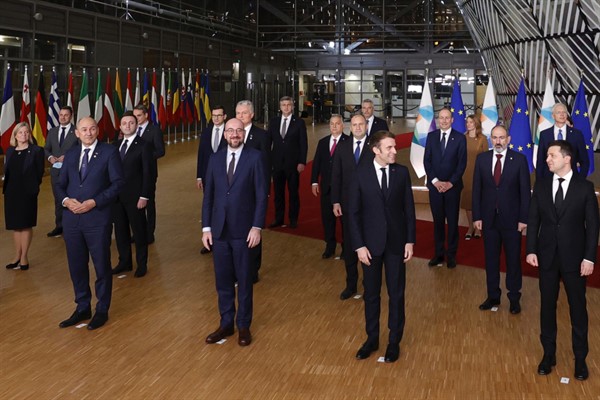The European Union’s 27 national leaders are meeting in Brussels for a European Council summit to discuss a coordinated response to Russia’s provocations along its border with Ukraine as well as the new omicron variant of the coronavirus rapidly spreading across Europe. But it appears that internal divisions could hamper both efforts.
Ahead of the summit yesterday, the EU leaders met with their five counterparts from the Eastern Partnership countries—Ukraine, Moldova, Georgia, Armenia and Azerbaijan—in a show of solidarity with Kyiv. Speaking after the meeting last night, European Commission President Ursula von der Leyen said there was a “shared concern about Russia’s build-up at the Ukraine border.”
But just how unified the EU 27 are on the issue was an open question in the runup to the summit. In recent days, Germany’s new chancellor, Olaf Scholz, has called for “dialogue” with Moscow, while Italian Prime Minister Mario Draghi cast doubt on whether Putin really intends to invade Ukraine, as most Western intelligence services appear to believe. It’s a far cry from the dramatic comments made by Russia’s EU neighbors as they entered today’s summit, with Lithuanian President Gitanas Nauseda calling the border standoff the “most dangerous situation of the last 30 years,” arguing that Russia threatens not only Ukraine, but also NATO’s eastern flank.

